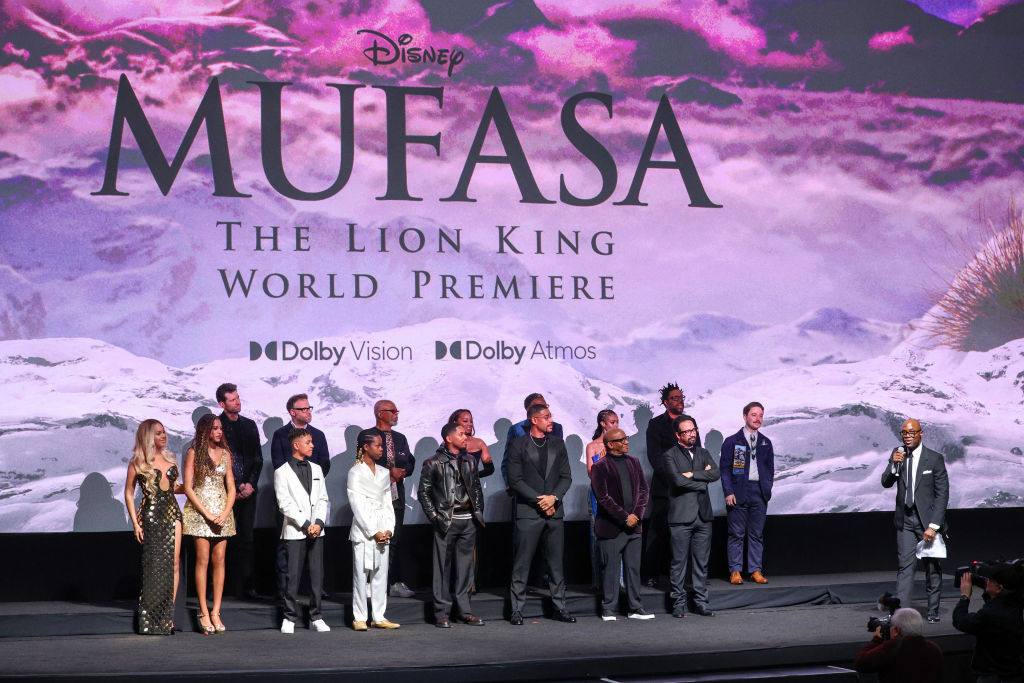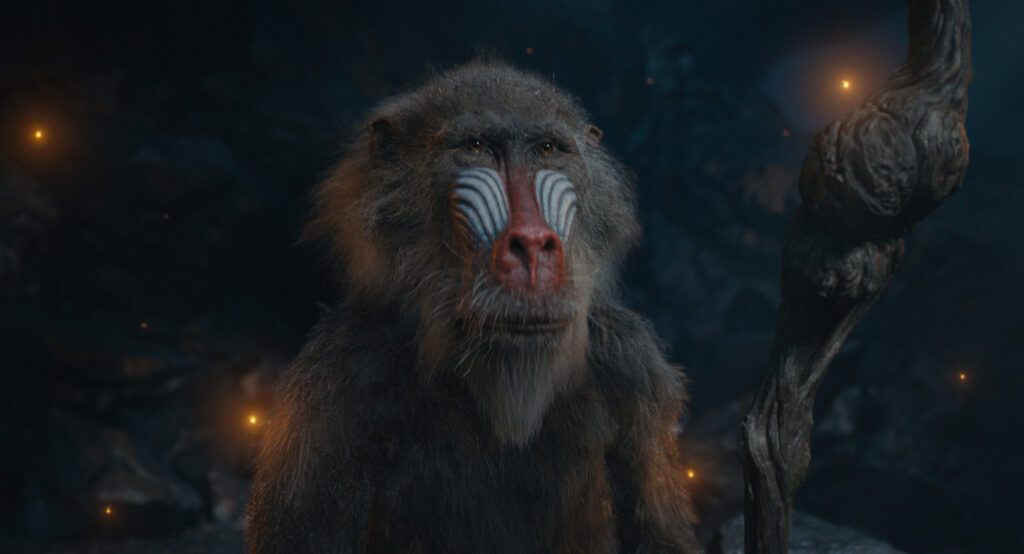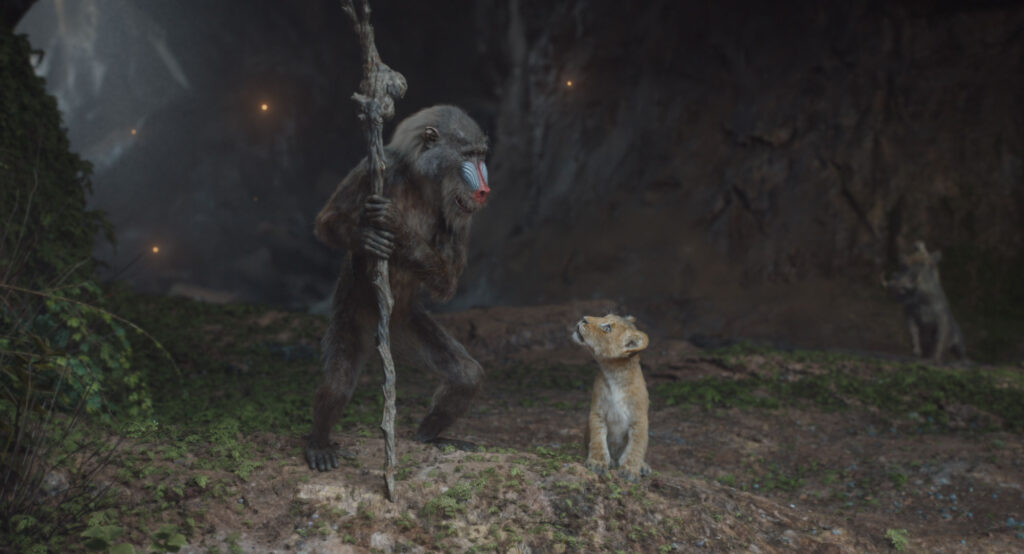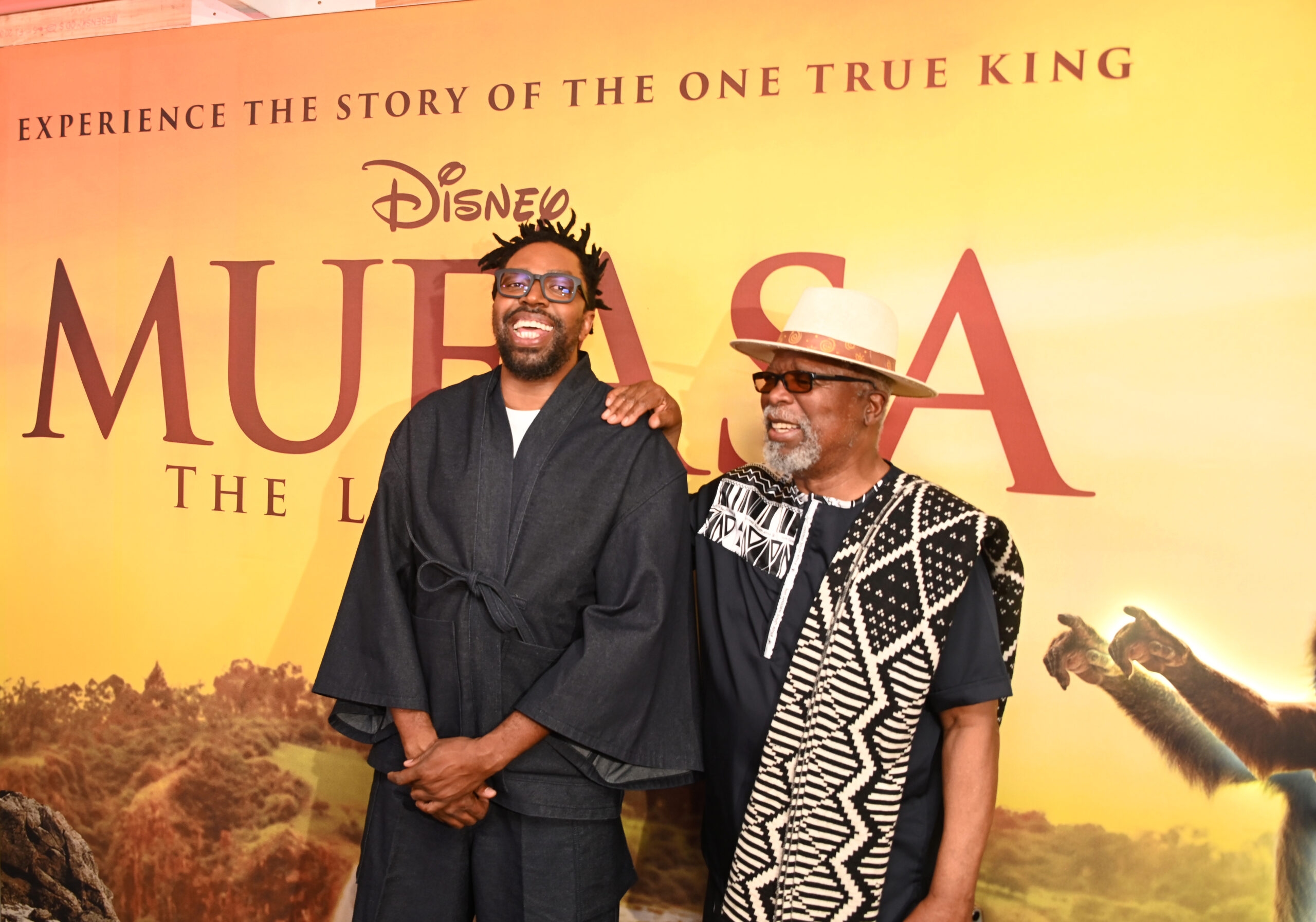It has been 30 years since the release of the cinematic classic, The Lion King. It has been 27 years that it has been playing on stage at the Minskoff Theatre in Broadway, New York. The legacy continues with the release of Mufasa: The Lion King, the prequel to the 2019 live-action version of The Lion King. South African actor Dr John Kani, who reprises his role voicing for Rafiki the mandrill, and Kagiso Lediga, who played the mandrill in the live-action film, reveal more to FORBES AFRICA.

“When they first released the first animation of The Lion King, that had everybody glued,” South African actor and author, Dr John Kani tells FORBES AFRICA. “We had to watch it 89 times because the kids kept saying, ‘I want to watch The Lion King’.”
Chatting to FORBES AFRICA just days before the release of Mufasa: The Lion King, Kani says the animated film is deeply rooted in being African as it teaches audiences about the gift of hearing stories from your elders. In the movie, Rafiki relays the legend of Mufasa to lion cub Kiara (played by Beyoncé’s daughter Blue Ivy), the daughter of Simba and Nala.

“In 2019, we did the CGI (computer generated imagery) version, which was more technically advanced,” Kani says. “And when I got the call from the director, Barry Jenkins, that ‘we’re doing The Lion King again, but this time, it’s a prequel, Mufasa: The Lion King; and would you voice Rafiki again’, I thought ‘what an honor, what an incredible moment for me’.”
“The pressure of [being asked to come and play Rafiki], the iconic-ness of it all,” exclaims South African actor and comedian Kagiso Lediga. “But I also feel like it’s part of this collective human [race]. From the past 30 years, people who grew up in the 1990s, people who have had children, who’ve watched it, they’ve put their children to sleep [with it]. It’s almost, I don’t want to say religion, but it’s [almost like it]. It’s got its subculture of people.”
Loading...
Related in flashbacks, the story introduces Mufasa as an orphaned cub, lost and alone until he meets a lion named Taka — the heir to a royal bloodline. The meeting then allows for “an extraordinary group of misfits to search for their destiny”.
Director Jenkins says that he saw this film as an opportunity to ground Mufasa — to show that the character was not born perfect.
“In The Lion King, when Mufasa looks up to the heavens and you see all the great kings, we assume that they were all just born great… He was not born wealthy. He was not born entitled. He was just someone with a family who lost that family,” Jenkins says. “Then faith and fortune and luck gave him a new family that he learned from and built with. He wasn’t given a damn thing — he earned all of it through learning, through being one with his environment, through caring for others.”
For Kani, the film emphasizes the emotional connection between generations and the need for young people to understand their roots. Highlighting the story of Mufasa, it also showcases the bond of family. Kani stresses the importance of relationships and understanding diverse cultures, and that this is what he believes people will relate to when watching Mufasa: The Lion King.

“One of the greatest threats in our modern society is the disappearance of family. Children do not grow up with grandparents they can rely on and confide [in] when faced with challenges,” Kani adds. “To get a story like this where the role of elders is still critical in passing on to the next generation… This is what people will relate to when watching this great epic Mufasa: The Lion King. That they will need to go home and ask mom; ‘tell me more about your family, who was your mother, what was your father.’… You will feel like you will need a moment of sharing the past, the present, and how we go to the future.”
Lediga says that he would like audiences to feel what he felt the first time, in 1994, when he watched The Lion King at Sterling cinema. He recalls how he was on a date and how for the first time, as Apartheid had just ended, as a Black man, he could walk into a cinema and watch a film. He went to a different cinema house in Durban a few weeks later and watched the film again.
“Look at it like this, you’ve got this great script, you’ve got this great iconic character, and it was very important to just honor that. You need to live in that, in the present of it all,” Lediga says, recalling the days leading up to the production of the project. “Take that script to where it’s meant to go and further. And I guess that’s the job I had. If the audiences can watch this, and if I could make audiences feel the way the original film made me feel, the original Rafiki made me feel, then, I’m happy, then it’s Christmas!”
Loading...
